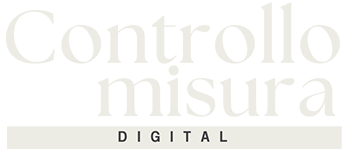Towards a 4.0 Mentality
During a conference organized in partnership with Federtec and G.I.S.I., Bureau Veritas showcased its tools supporting companies towards Industry 4.0, because it’s not only a question of economics: we need a new mentality able to change company structure
by Silvia Crespi
In partnership with Federtec and G.I.S.I., On May Bureau Veritas Italy – a global leader in Testing, Inspection and Certification (TIC) – organized a conference on digital 4.0 at Cinisello Balsamo, in Milan, explaining how the certified company’s tools can aid firms in their transition to Industry 4.0. A variety of speakers, from Bureau Veritas Italy experts to academics to external partners, attended the event. Industry 4.0, Enterprise 4.0, digitalization 4.0 or more simply 4.0, this is an opportunity Italian companies cannot afford to miss if they wish to stay competitive.
A right mix of enabling technology, organization and 4.0 skills
Are Italian companies making efficient, and above all, correct steps down the pathway to digitalization? According to the speakers present, this is not always the case. Technological investment intending to transform production processes are not the be all and end all of the question. What is really required is the acquisition of a new mentality able to change company structure.
To get to grips with digital maturity and the right mix of enabling technology, organization and 4.0 skills, Andrea Donato, Innovation Manager 4.0 at Bureau Veritas Italy took to the floor: “Digital 4.0 is a complex subject, it is wise to search out a simpler approach, otherwise it can often be very difficult for companies to find the right solution for them. There can be overlapping of technology levels, a great generator of confusion. What should be done with which tools? What are the risks I am facing and what are the benefits to be gained? These are frequent questions, simple and clear, that firms regularly ask themselves”.
The process of renewal must from company governance
Donato believes it is correct to think about the very concept of industrial revolution. Is it really happening again? Or was it simply something decided on around a high powered board room meeting somewhere? “What is for sure is that today, it has not brought about the hoped for results in terms of company rebirth but above all, it hasn’t changed the mind set and behaviour of companies”.
In Italy, says Donato, we are very much still in a period of transition; companies tend to stay in a kind of technological comfort zone, and the gap between those companies who only think in a cost based framework and those who strive for genuine innovation continues to grow day by day. Investment will have strategic value only where not viewed under a purely mechanical, technological perspective but as a holistic company transformation. The process of renewal must begin from the top, from company governance. Managers (commercial or financial) must have a synergical relationship with engineers, working together to make the necessary steps toward change, with a shared vision, a reality.
Checking the business areas affected by this change
Should there be doubts about benefits obtained through digital technology, the results of companies who have firmly believed in this transition are there for all to see: savings of 10 to 20% on production costs; a 30-40% reduction in logistics costs; 20-40 % made up in fixed overheads (quality control, maintenance, down time, logistics, technical assistance etc.).
Once the full potential of innovation has been recognised, the next step is to set up the transformation to digital. Here, it is fundamental to check the business areas affected by this change. Bureau Veritas has developed its own methodology that follows the various stages of the process in its technological areas, organization, operation and supervision. Starting with analysis of the pre-requisites, followed by organizational analysis, to finish with digital requirement analysis.
The key role of IoT technologies in industrial plant management
As previously mentioned, the academic world was also in attendance at the event: Guido Jacopo Luca Micheli, professor at the Politecnico university in Milan, illustrated with the support of Guido Sala, innovation process expert at Bureau Veritas Italy, the key role IoT technologies play in industrial plant management. IoT is the answer to such questions, through the use of specialized tools: but am I sufficiently connected? Do I have the right protection, am I enabling efficiency? Am I innovating?
For the IoT project to be a success, it is fundamental to clearly identify goals, value processes and tools. There are no ready made solutions, each project must be individually studied.
Big Data and Machine Learning
Simone Masi and Andrea Barbieri of Plan Soft, Bureau Veritas partner, looked into the problem of analyzing the large quantity of data produced in the digital workplace and which instruments are best suited to an efficient analytical process.
According to the Gartner definition, the term “Big Data” concerns data collection which is so vast in its volume, speed and variety that it requires new methodologies to be in place to then get to decision making, in depth evaluation and process optimization from it. Once again, a shift in concepts is necessary to go beyond the traditional approach.
Machine Learning is one such solution. The new frontier of ML will be deep learning, multi layer neuronal network analysis.
Economic incentives: what has changed?
Valentina Mussi and Alessandro Ferrari, respectively Industry 4.0 Development Specialist and Industry 4.0 Product Manager, spoke about economic incentives and what has changed concerning trade in deals, tax credits and so on.
Bureau Veritas helps companies in understanding what their strategic objectives are and therefore, which areas to focus their investment in.
This is carried out through evaluation of the technology a company currently uses (adequacy of ICT systems, hardware, software and so on), operative condition (management skills and process execution), organization (organizational structure) and supervision (process monitoring and control). The certification process will begin with the preliminary audit, in other words, understanding client needs working through to the final conformity certificate. Tax credits can be sourced having organized a 4.0 base training programme.

